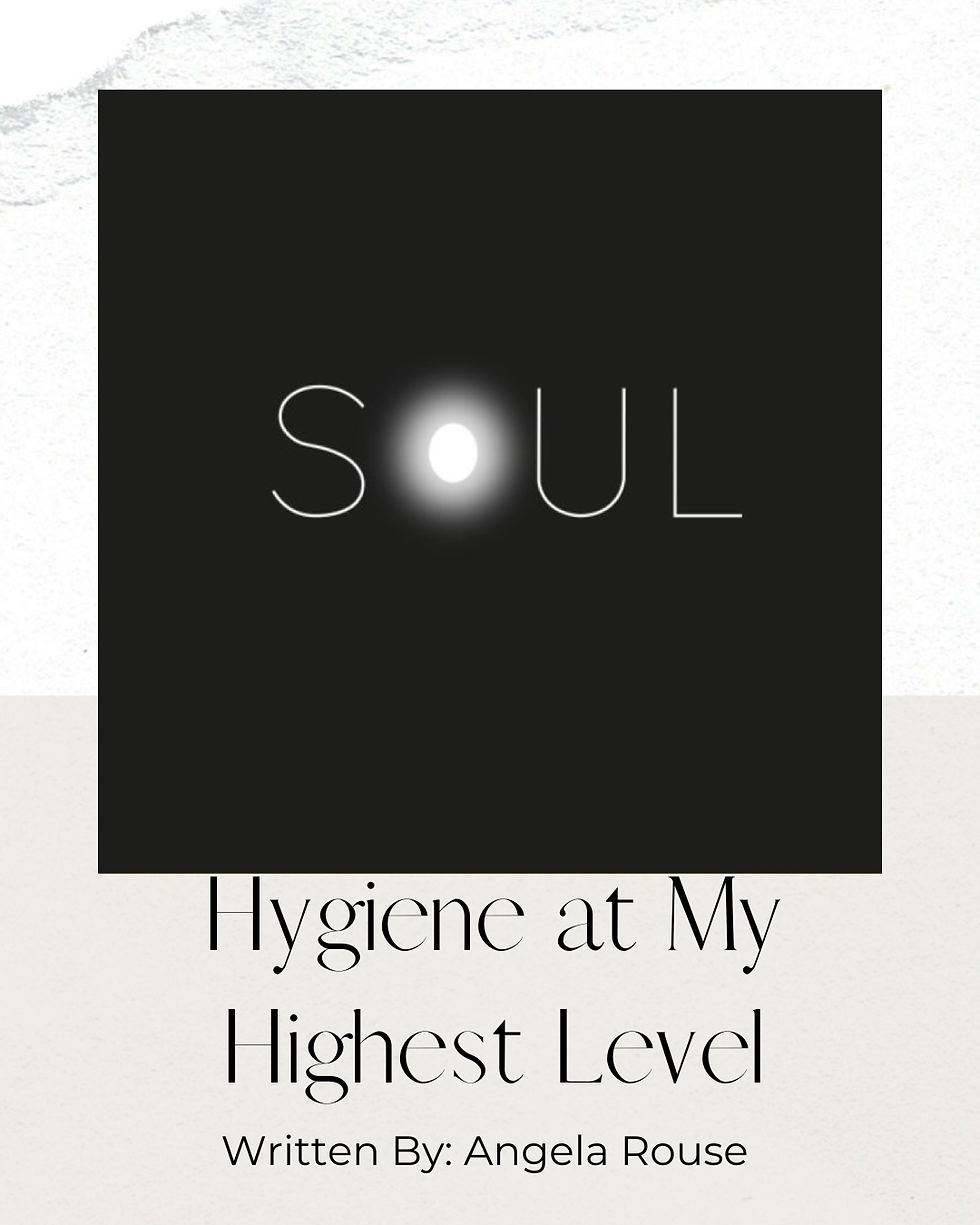The Left Wing of My Becoming
- Angela Rouse

- Sep 28, 2025
- 3 min read
There’s been a quiet reckoning in my life—one that doesn’t announce itself with fireworks, but with the slow, deliberate peeling back of distractions. Over the past three years, I’ve walked away from many of them. The noise. The roles. The masks. I’ve turned inward, toward healing. And in doing so, I opened my home to my aging parents.
That’s the respectful way of saying: my house now has what we lovingly call the left wing.
I smile when I say that, because no matter how many systems we put in place—color-coded calendars, meal rotations, gentle boundaries—my mother and father treat it like a high-end nursing home. My dad practically rings a bell for my mom to do all the things, then five minutes later he doesn't remember who she is. My mom critiques the lighting like she’s reviewing a spa. And me of course? I’m wearing so many hats, as I move forward with my self healing.
When Healing Happens in Tandem
While I was unearthing old agreements and reclaiming my soul, my husband was walking his own path—one marked by waiting, uncertainty, and the quiet ache of transformation. For three years, we lived in the shadow of a kidney transplant. And in that time, I became his caregiver oh wait I still am for the next year.
Not just in the practical sense—medications, appointments, monitoring symptoms—but in the emotional sense, too. I held space for his fear, his fatigue, his frustration. I became the steady ground beneath his shifting identity.
That process changed him. It softened parts of him, yes, but it also stirred up grief. Because when your body fails you, it’s not just a physical reckoning—it’s a spiritual one. And while I’ve been rediscovering myself with clarity and conviction, he’s still learning how to meet the man he’s becoming. I often am surprised at my new behaviors towards myself, and now I am being introduced to this new man, because his physical appearance has changed so drastically.
That is his story to tell. And one day, I’ll invite him to share it in his own voice.
But today, I want to speak to how his transformation has collided with mine. How our marriage, once built on familiar rhythms, is now learning a new dance. One where I am no longer the woman who over-functions to keep peace. One where he is no longer the man who hides his vulnerability behind strength.
We are learning to see each other again. Not as the old familiar roles, but as new healed souls.
And that is the real work of love—not just surviving the hard seasons, but allowing them to remake us. To stretch our capacity for compassion. To deepen our understanding of what it means to choose each other, again and again, even as we change.
This season has stretched me in ways I never expected. It’s softened me, yes—but it’s also sharpened my awareness. Of what I’ve agreed to. Of what I’ve abandoned. Of what I’m reclaiming. All while living with the people who caused some not all but enough of the agreements I'm walking out of.
And as I rise into new boundaries—ones that protect my soul, my time, my truth—the closest person to me, my husband, is watching me shift. At first, he adored the softening. The gentleness. The way I exhaled into presence. But now, as I begin to say no with grace and yes with discernment, he’s asking: Why and where is this coming from?
And I understand that question. Because change, even when it’s rooted in love, can feel like loss. The version of me he knew—the one who said yes before checking in with her spirit, the one who absorbed more than she expressed—is evolving. Not away from him, but deeper into herself.
This post isn’t about blame or division. It’s about the sacred tension that arises when one partner begins to reclaim themselves. It’s about honoring the discomfort that growth can bring into our closest relationships. And it’s about trusting that love, when it’s true, can stretch to hold the new shape of our becoming.
To those of you walking a similar path: You are not selfish for setting boundaries. You are not unloving for choosing yourself. You are simply remembering who you are—and that remembering may ask others to see you anew.
Let them.
Let them witness your becoming. Let them grieve the old agreements. Let them choose, again and again, to meet you where you now stand.
Because this is what transformation looks like: not just within us, but between us.



Comments